Any ideas?
Piccys of Door switch, pump and motor below
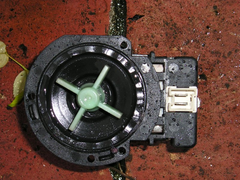

pump 1
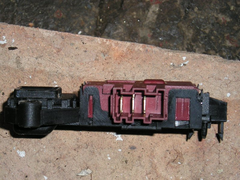

doorlock2
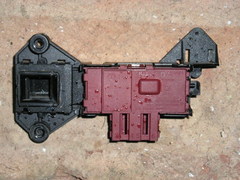

doorlock1
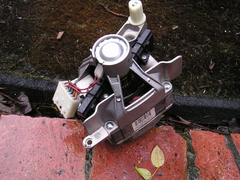

motor 1
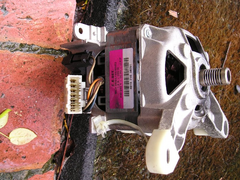

motor 2
Cheers
[Edited on 7/1/07 by locoboy]
[Edited on 7/1/07 by locoboy]

My washing machine is up the spout at the moment and i have stripped the main culprits from the machine and i need to know if they can be tested with
a multimeter and if so how?
Any ideas?
Piccys of Door switch, pump and motor below


pump 1


doorlock2


doorlock1


motor 1


motor 2
Cheers
[Edited on 7/1/07 by locoboy]
[Edited on 7/1/07 by locoboy]
If it just doesn't come on, the usual suspects are the carbon brushes on the motor. I've had to do my machine twice now and do a mates one.
Check yours on the motor. Usually just clip out.
The usualy signs of them going are either the washing machine won't run a program or it sparodically cuts out (before just giving up).
door switch is a very common prob
The brushes 'look' fine and have plenty of meat left on them, do they physically wear away and then thats them knackerd?
I dont know how to test the door switch - any ideas?
See that bit on the back of the motor, where the double connector is?
Well, I've traced problems on ours (Bendix) to that and the IC board it runs to/controls. The motor end picks up pulses, sends 'em to the
IC which then controls the motor speed. (As an aside, the IC board will contain a nice little chip, that can be converted to run a radiator fan at a
speed in direct response to the water temp.)
The long and short is, if the IC doesn't get pulses, the motor won't turn. Don't ask me, I was told that and it's true! When the
motor starts turning, the IC gets the pulses and then regulates the speed.
You'll need an oscilloscope to check the pulse output. Put the probes across the two pins and turn the motor by hand. You'll see the outputs
on the scope.
The boards blow often, and can cost a bomb.(>£80) The transistor and IC cost about £5 from RS.
HTH
Regards,
Syd.
just taken the burgandy bit on the door switch apart and its all scorched and has a partly melted terminal so at a guess its that!
Will get another on and fit and see ehat happens 